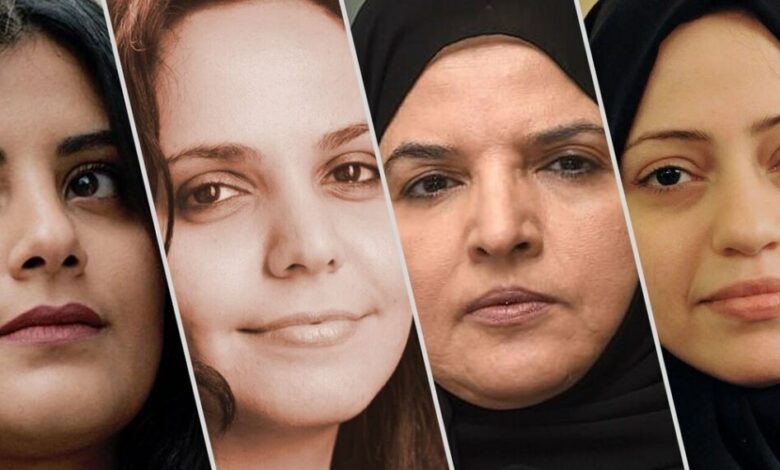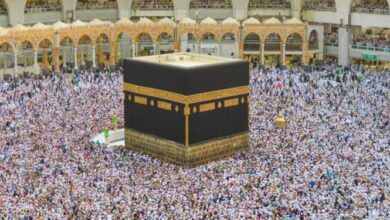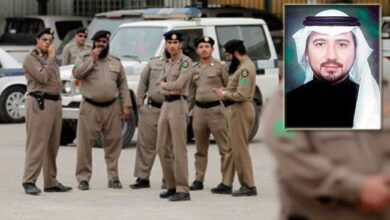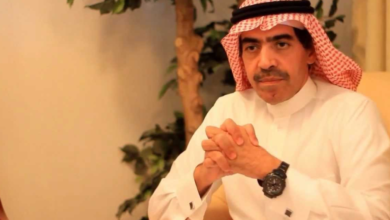Three Years of flagrant Human Rights Violations against Saudi Women

A human rights platform documented three years of violations against Saudi women’s right under the rule of Crown Prince Mohammed bin Salman.
Coinciding with the third anniversary of notorious mass arrests against the Saudi women, the “Saudi Women Detainees” platform interacted on its Twitter page.
“The harvest of 3 years since the September campaign: gagging, verbal abuse, insult and degradation, ill-treatment, beating, torture, harassment, death threats, assassination,” the campaign said.
حصاد #٣سنوات_على_حملة_سبتمبر:
– تكميم أفواه
– إساءة لفظية
– إهانة وحط للكرامة
– سوء معاملة
– ضرب
– تعذيب
– تحرش
– تهديد بالقتل
– اغتيال..
إنّ استمرار الاعتقال التعسّفي في السجون السعودية يعني الموت على حافة زمن يمر بغاية البطء. pic.twitter.com/rPH2vCNQsy— سعوديات معتقلات (@hw_saudiwomen) September 9, 2020
It pointed out that among the detainees of the September 2017 campaign is the nurse and human rights activist Fatima Al Nassif, who was detained for bandaging some protesters who peacefully protested demanding their basic human rights.
The platform stated that among the detainees is the relief activist Dalal al-Khalil, who was detained for only providing aid to the poor and demanding freedom for detainees and prisoners of conscience.
The Al Saud regime does not recognize many of the international conventions, including the International Covenant on Political and Civil Rights, and the International Covenant on Economic, Social and Cultural Rights.
The Kingdom has also not ratified the International Convention for the Protection of All Persons from Enforced Disappearance, as well as arbitrary detention.
Since King Salman and his son MBS took power in the country, the security services that belong to Bin Salman, have started arrest campaigns against political, social and human rights activists from various domains.
The European Saudi Organization for Human Rights has documented the arrest of 87 women by the security authorities since Salman and his son ruled the kingdom (2015-2020).
The Saudi European Organization stated that there are 50 female detainees currently in “Dhahban” prison in Jeddah. While the authorities have released 8 women, their trial is still ongoing, and 8 other women were finally released.
The organization said that the fate of one of the detainees is still unknown.
The female detainee, Hanan al-Dhabiani, died in “Dhahban” prison on October 10, 2016, which was met with widespread international human rights condemnation and demands for the release of other women prisoners of conscience.
On May 15, 2018, Al Saud security arrested a number of prominent human rights activists, in a campaign that was more severe and wider, as this was the first time that the authorities targeted the activists collectively.
The Al Saud authorities are arresting 13 women’s rights activists, and they are being tried for their human rights activities. Of these, five are still in detention: Loujain Al-Hathloul, Samar Badawi, Nasima Al-Sada, Nouf Abdel Aziz, and Maya Al-Zahrani.
A recent documentary by “Al-Jazeera” channel shed light on the brutal torture that detainees were subjected to in “Dhahban” prison, refuting as stated by activists and accusations against them by the Al Saud government, and explaining the methods of torture used against them.
The documentary provided the testimony of “Yumna Desai,” the former detainee, who was an eyewitness to what happened in “Dhahban” prison, in which female prisoners of conscience are being held.
Yomna said that she was working as a teacher until she received a call from the administration of the University of Hail informing her of a problem with her passport that required going to the passport office. As soon as she left the college building, she found the secret security forces waiting for her. She was taken to her house for searching, and then she was transferred to the main security office in Hail. And then she was thrown in the Dhahban prison.
She added that foreigners were not allowed to make international calls, so she did not communicate with her family for three years of detention. She notes that Saudi Arabia claims that it is fighting terrorism, but that its practices are spreading hatred among people.
Activist “Sahar Al-Fifi” said that one of the detainees was stripped of her clothes and photographed naked, and her picture was placed on the interrogation table to force her to answer, and some detainees were subjected to sexual harassment while they were tied with handcuffs (iron chains).
A number of activists were subjected to sexual harassment by touching in sensitive places, being stripped naked and photographed. At least one of them was subjected to psychological torture, according to human rights organizations.
The international human rights lawyer, Rodney Dickson, pointed out that the laws used to try detainees in the Kingdom are vague, ambigious and unspecified, and therefore it is easy to exploit them to justify any act and impose the punishment desired by the Saudi authorities.
As for the human rights activist “Hessa Al-Madi”, she said that upon her asylum in Sweden, she was able to write the story of her persecution and the ongoing violations in the Kingdom. She also cooperated with international organizations despite the threats she received through pseudonyms of forcible return to Saudi Arabia or death.
Amnesty International severely condemned the torture and ill-treatment of female prisoners of conscience in the prisons of the Al Saud regime, including sexual harassment.
Samah Hadid, director of campaigns in the organization’s Middle East program, said that the Saudi activists who demanded women’s rights faced the most severe forms of cruelty and oppression in prison, including sexual harassment, torture with electric shocks, and even waterboarding.





